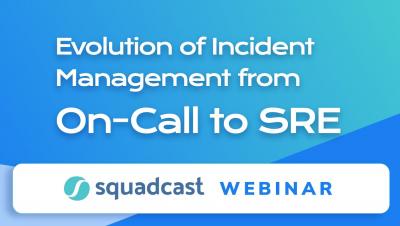Operations | Monitoring | ITSM | DevOps | Cloud
Incident Management
The latest News and Information on Incident Management, On-Call, Incident Response and related technologies.
Areas to Streamline Incident Management
When a serious incident occurs, time is essential. Streamlining different components of the incident response and management process can help minimize the time it takes to resolve an incident. Proper streamlining also helps reduce downtime, restore functionality, and potentially curtail the overall impact of an incident-not to mention the costs incurred during these events. This article examines several areas of incident management, the potential challenges of manual implementation, and how an automation platform can alleviate these challenges to provide a streamlined incident response process.
How to choose the right Incident Management software?
6 Must-Have Features of an Alert Notification Software
Alert notification software is an essential tool for IT operations, as it enables teams to quickly respond to critical issues and ensure the smooth running of systems and services. With the increasing complexity of IT environments, it is more important than ever to have a robust alerting system in place. General robustness is essential as such alert notification system will quickly become an essential part of your operation stack.
Incident Management KPIs - what really matters
In the age of Big Data and analytics, companies are increasingly using the power of numbers and data to improve their processes. In the incident management world, this means turning to KPIs, metrics, and other incident monitoring methods to recognize trends and take corrective action. To manage and improve your incident management processes, you have to keep an eye on KPIs and metrics.
Critical Alerts for iOS and iPhone
The PagerTree iOS (iPhone) app now supports Critical Alerts bypassing do not disturb and the mute switch! A new version of the PagerTree is available today that adds support for Apple's Critical Alerts.
"Avoiding Catastrophic Outages" | DeveloperWeek 2023
How to untangle monitoring noise and leverage observability best practices
Most organizations suffer from some form of alert noise, shares Adam Blau, senior director of product marketing at BigPanda. “Alert noise is only going to increase as organizations support cloud-native applications spanning multiple public and private clouds, including ephemeral deployments and more. It’s not going to get easier for organizations to understand the signal from all those alerts being sent,” Blau said.











